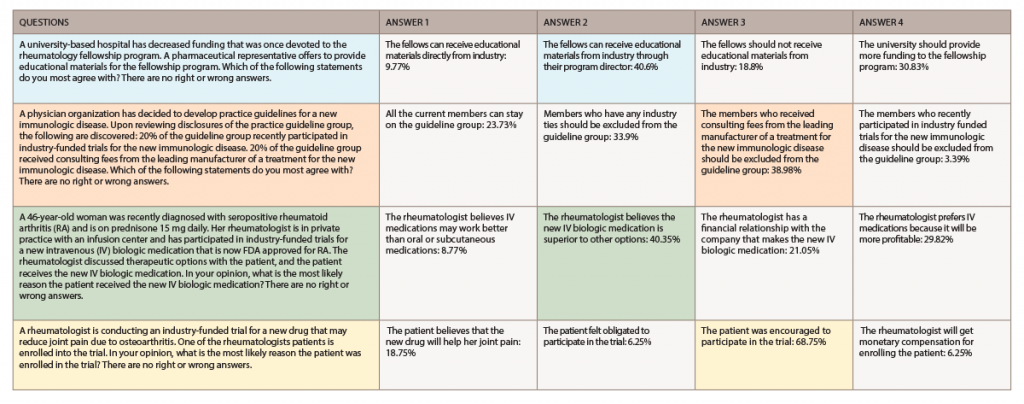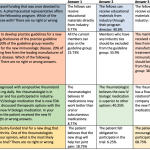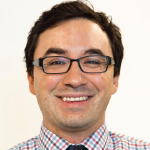The ACR’s Position
The ACR requires its volunteers to provide disclosures at the time of nomination and at least yearly so the College can identify, evaluate and manage relationships that may pose “actual, potential or perceived conflicts.” The ACR also requires that everyone in a position to control continuing medical education content disclose all relevant financial relationships with any commercial interest within the past 12 months. Disclosures from the board of directors are posted on the ACR’s website.
Dr. Kang says it’s not adherence to existing policy—which is fairly clear-cut—that poses tough questions routinely for rheumatology providers. It’s the more nuanced situations that are vexing.
“There’s policy, and then there’s what’s really happening,” she says. “In reality, most situations are more gray and there is no clear, right answer. Some people may have very strong opinions. But most people, I think, are not quite sure what to do.”
There is no plan yet on whether and how to incorporate the survey feedback into the ACR’s activities and programming, Dr. Kang says.
“It was an informational, exploratory exercise to understand how people are thinking about these issues,” she says.
Dr. Kang says considering conflict of interest policies and scenarios is particularly important given the explosion of research interest in rheumatology.
“There’s this desire for us as physicians to advance the field, to develop, study and provide new therapies for patients who may not have the treatments that they need—and rheumatology is very exciting because we continue to have a lot of new options for treatment, which really has changed or can change our patients’ lives,” she says. “It just inevitably leads to more ties with industry.
“It requires continuous effort to manage that potential conflict or even the perception of conflict. It’s certainly a challenge, but we have to do it,” she says. “The major threat is losing the public’s trust. If the public doesn’t trust physicians, we won’t be able to do what we need to do to help patients. We have to be transparent to maintain the public’s trust.”
Thomas R. Collins is a freelance writer living in South Florida.




